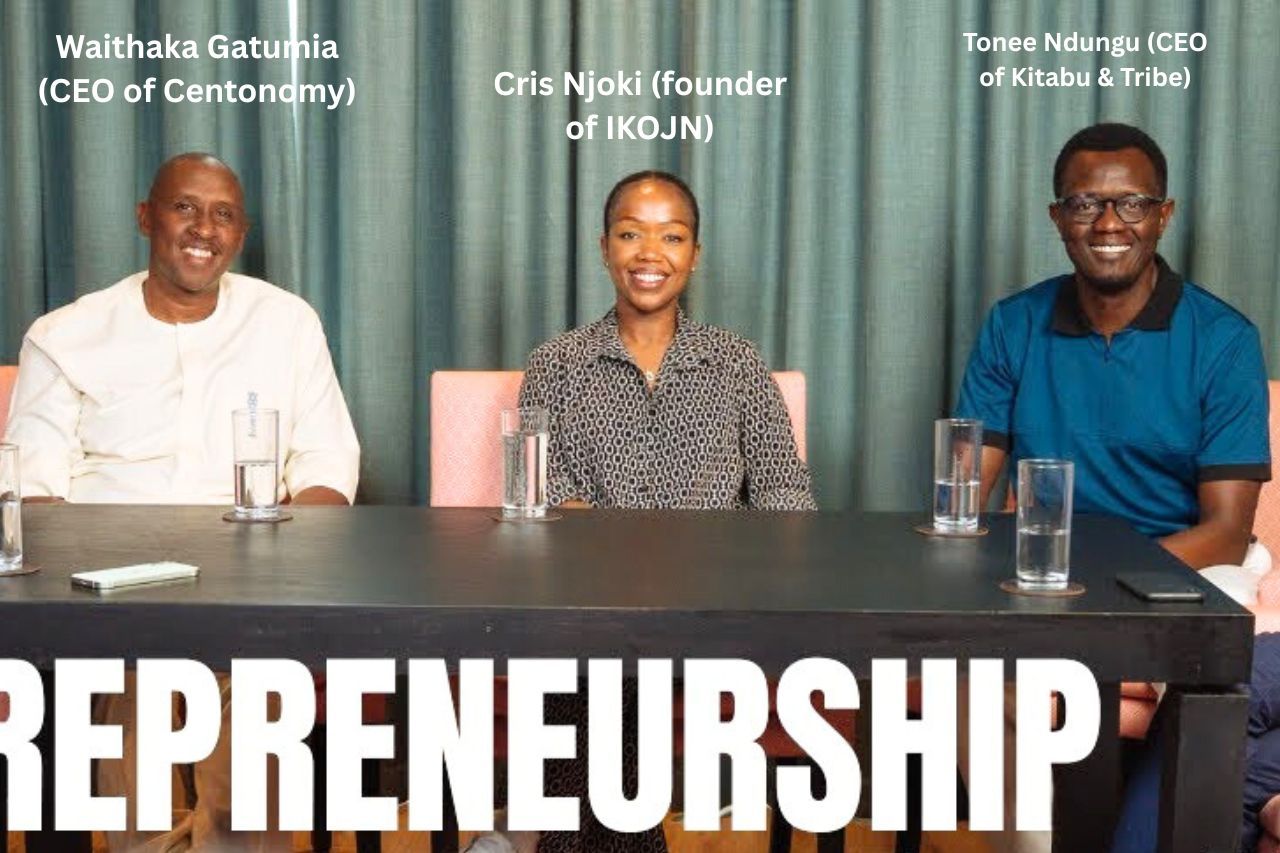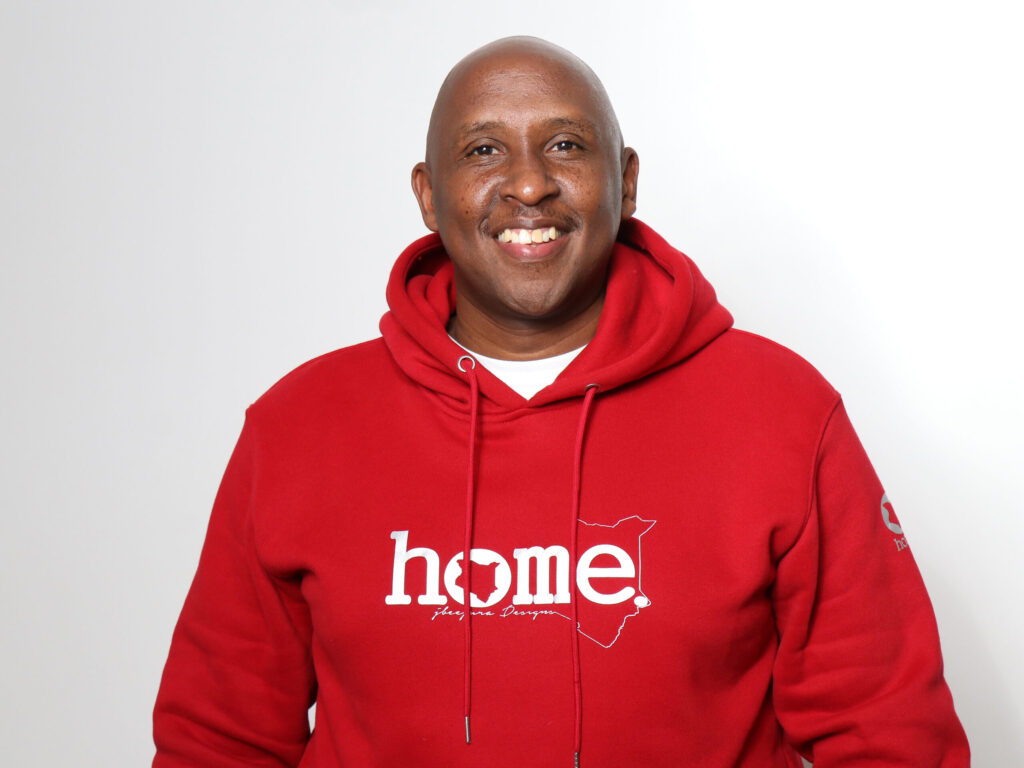
Building a Resilient Business
Building a Resilient Business in Kenya, Premium Lessons from Cris Njoki, Waithaka Gatumia, and Tonee Ndungu
In an economy full of uncertainty, volatile policies, and rising youth unemployment, the call to build resilient businesses in Kenya has never been louder. In a powerful episode of the Mantalk ke podcast, three of Kenya’s most dynamic minds-Cris Njoki (founder of IKOJN), Waithaka Gatumia (CEO of Centonomy), and Tonee Ndungu (CEO of Kytabu & Tribbe Nation)- tackle what it really takes to not just survive, but thrive as a business owner in Kenya today.
This blog recaps their conversation and distills key lessons on resilience, wealth, fear, failure, and opportunity for any Kenyan aspiring entrepreneur or established SME. Special Shoutout to Mantalk Ke for such a masterpiece Episode.
What Does Wealth Really Mean in Kenya?
The panel began by redefining what it means to be “wealthy.” Forget flashy cars and high income. According to Waithaka, real wealth is “the ability to live the lifestyle you want without having to work.” It’s about building income-generating assets, not just working for money.
Cris Njoki summed it up even simpler: “Wealth is freedom.” Tonee Ndungu agreed, adding that wealth is “unbridled time with peace.” For these leaders, true wealth is not just financial: it’s about purpose, peace of mind, and independence.
Top Money Myths That Hold Kenyan Entrepreneurs Back
Too many Kenyans still equate high income with wealth, but this is a dangerous illusion. As Gatumia notes, earning millions a month doesn’t make you rich if your lifestyle expenses match or exceed your income. If you lose your job or your business fails, you’re left with nothing.
The same problem afflicts many of Kenya’s rising influencers. Tonee Ndungu highlighted that many in the digital creator economy earn well, but few build assets or long-term wealth. Instead, they invest in lifestyle: cars, fashion, status. Without a clear financial strategy, this becomes a trap.
How to Manage Money When You Start Earning
So what should young Kenyans do when they start earning real income? Waithaka shared three rules:
- Pay Yourself First – Save and invest before you pay bills or expenses.
- Track Your Spending – Know exactly where your money goes.
- Focus on Assets – Invest in things that bring money back to you over time.
At Centonomy, Waithaka discourages generic percentage-based budgeting like “save 10%.” Instead, he advocates for purpose-driven planning. Your financial decisions must align with your goals, not arbitrary rules.
What Types of Assets Should Young Kenyans Focus On?

The discussion dove deep into “clever, intelligent, and mad” assets. According to Tonee, intelligent assets include things like stocks or mutual funds, clever assets are real estate and physical property, and mad assets are those high-risk, high-reward ventures, like AI, Bitcoin, or other innovation trends.
The people who build generational wealth often invest in the “mad assets” early during the dot-com boom, Bitcoin in 2010, or AI in 2022.
As Tonee said, “The folks who made money from AI in the last two years mostly weren’t African, because we missed the wave.”
In Kenya, many people buy land and sit on it. But land alone is not wealth unless it’s put to productive use or sold strategically. Asset ownership must be paired with strategy and movement.
How Cris Njoki Built IKOJN from Just KSh 200

One of the most inspiring parts of the podcast was Cris Njoki’s story. After fashion school, she felt inadequate compared to her peers pursuing law, medicine, and business. Still, she held on to her dream of starting a fashion brand.
With just KSh 200, she started thrifting four dresses at KSh 50 each, selling them for profit on Facebook. In one and a half years, she grew this hustle into KSh 1.5 million, which became the seed capital for IKOJN, now one of Kenya’s most loved local fashion brands.
Even after suffering massive losses with bad inventory from China, she bounced back and rebuilt from scratch.
The Role of Fear, Do It Afraid
Fear is a constant companion on the path of entrepreneurship. All three guests acknowledged that even today, they face fear in new business decisions. However, Tonee made it clear:
“Fear is a decision that this is not for me. If you say you can, you’re right. If you say you can’t, you’re also right.”
The key lesson? Do it afraid. Successful people don’t wait for fear to disappear. They act despite the fear. Cris admitted she delayed starting IKOJN even after hitting her savings target out of fear her brand would flop. Eventually, she launched anyway.
Tonee’s example? Speaking at a G7 event in Rome without notice, terrified and unprepared. That moment went viral and led to international partnerships and recognition.
Why Many Kenyan Businesses Remain Small and Fragile

Waithaka emphasized that a big problem in Kenya is that many businesses are subsistence-level. They earn just enough to survive, not scale. True businesses must aim for profit and sustainability.
He referenced local examples like Tuffoam, which grew from a standard hardware store into a national brand. The difference? They understood how to scale, invest in systems, and measure profitability.
Copying vs. Innovating the Kenyan Dilemma?
Many Kenyans replicate business models hawking sausages, opening cyber cafés, or launching boutique shops without understanding the market saturation or value chain gaps. Tonee challenged young entrepreneurs to add value to existing solutions.
Instead of copying someone’s fashion brand, why not build a logistics system to support fashion startups? Or create tools that enhance their customer experience?
Passion vs. Profit, Which Matters More?
Tonee stirred the waters with this hot take: “I don’t believe in passion. I believe in profit.” While Cris and Waithaka agreed that passion is important, they emphasized it must be backed by discipline, grit, and financial results.
Building a successful brand is not about doing what you love, it’s about offering value consistently and finding purpose in impact, not validation.
Creating Policy That Supports Youth Entrepreneurs in Kenya
When asked about government policies that could support entrepreneurs, the panelists shared practical ideas:
- Remove trade barriers across African countries to allow easier expansion across borders.
- Invest in local raw material production to reduce dependency on imports.
- Create financing structures and risk capital that support early-stage businesses.
- Stop taxing youth hustles excessively, instead, nurture them.
Cris emphasized that despite IKOJN being made in Kenya, she still depends on imported raw materials. Bringing back local textile production would benefit many Kenyan creatives.
Final Words

The podcast ended on a powerful note about the importance of faith, grit, and mentorship. Tonee reminded young people that:
- You don’t need exposure to start.
- Failure is part of the game.
- Support and community matter.
As Cris put it, “Everyone is scared. Even the President. The goal is to live with fear, not wait for it to go.”
Conclusion
If you’re young, broke, unemployed, or simply unsure how to begin, this conversation should light a fire in you. From starting with KSh 200 to raising KSh 5.5 million, from auction debts to G7 speeches, resilience is built by action, not excuses.
Whether it’s tech, fashion, media, farming, or content creation, here’s what this podcast taught us:
- Start small. Scale with strategy.
- Save and invest first, spend later.
- Focus on building assets not lifestyle.
- Fear is real, but do it afraid.
- Be original or improve something that already exists.
Because at the end of the day, belief, consistency, and clarity of purpose will get you through anything, even the Kenyan economy.





